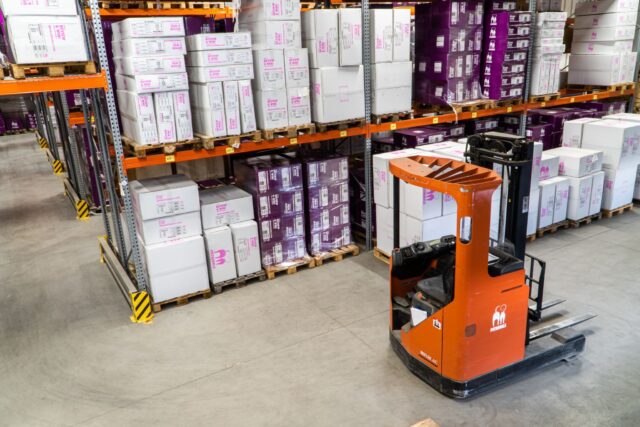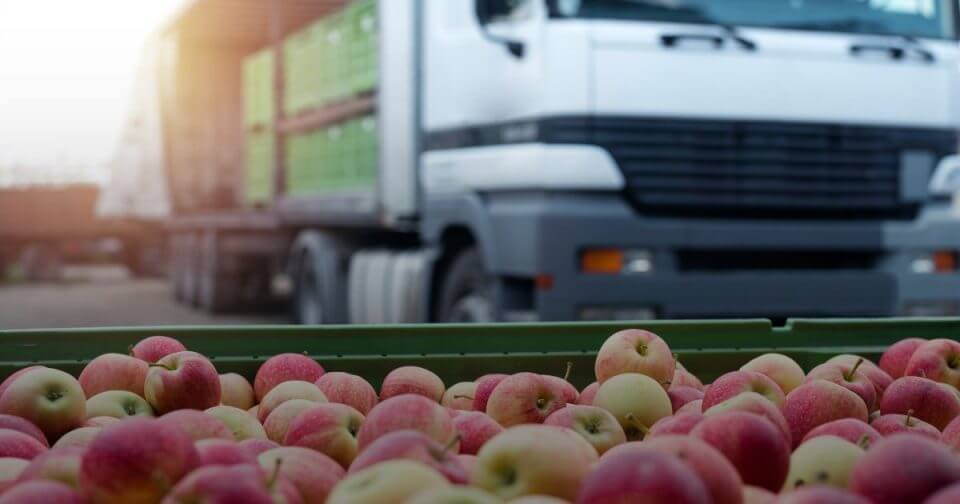What is WMS Software for Food Distribution?
Food and Beverage WMS software for food distribution is a specialized system designed to manage and optimize warehouse operations specific to the food industry. It automates various processes, including inventory tracking, order fulfillment, and compliance with food safety regulations. By providing real-time visibility and control over inventory and warehouse activities, WMS helps food distributors maintain high standards of efficiency and accuracy.
Key Benefits of WMS for Food Distribution
1. Enhanced Inventory Management
Efficient inventory management is critical in the food industry to prevent spoilage and ensure product freshness. WMS software offers real-time tracking of inventory levels, locations, and movements. This capability helps in:
- Reducing Waste: By accurately tracking expiration dates and implementing the First Expired, First Out (FEFO) method, WMS minimizes food waste.
- Improving Order Accuracy: Real-time data ensures that orders are picked and packed accurately, reducing errors and returns.
- Optimizing Stock Levels: Automated replenishment and forecasting features help maintain optimal stock levels, preventing overstocking and stockouts.
2. Compliance and Traceability
Food safety regulations require strict adherence to traceability and compliance standards. WMS software provides comprehensive traceability from raw materials to finished products, enabling quick and effective recalls when necessary. Key features include:
- Lot and Batch Tracking: Track every batch of product from receipt to shipment, ensuring traceability and compliance with regulations.
- Quality Control: Integrated quality control checks at various stages of the warehouse process ensure that only compliant products are shipped.
3. Improved Operational Efficiency
Automation of warehouse processes through WMS software significantly boosts operational efficiency. Key aspects include:
- Streamlined Receiving and Put away: Automated systems guide warehouse staff to the correct locations for storing received goods, reducing time and errors.
- Optimized Picking and Packing: Advanced picking algorithms and real-time data help optimize picking routes and reduce fulfillment times.
- Reduced Labor Costs: Automation reduces the need for manual intervention, lowering labor costs and increasing productivity.
4. Better Customer Satisfaction
By ensuring timely and accurate deliveries, WMS software enhances customer satisfaction. Benefits include:
- Faster Order Fulfillment: Automated processes and real-time inventory tracking enable faster and more reliable order fulfillment.
- Accurate Deliveries: Reduced picking and packing errors lead to higher order accuracy, improving customer trust and loyalty.
5. Scalability and Flexibility
WMS software for food distribution is scalable and adaptable to changing business needs. As your business grows, the WMS can scale to handle increased volumes and more complex operations. Features supporting scalability include:
- Flexible Configuration: Customize workflows, reporting tools, and user interfaces to meet specific business requirements.
- Multi-Warehouse Management: Manage multiple warehouse locations from a centralized system, ensuring seamless coordination and optimization.
Essential Features of WMS for Food Distribution
1. Real-Time Inventory Tracking

Maintaining accurate and up-to-date records of stock levels, locations, and movements is essential for preventing spoilage and ensuring timely order fulfillment. Real-time inventory tracking provides:
- Accurate Stock Levels: Continuous monitoring to avoid stockouts and overstock situations.
- Informed Decision-Making: Access to current inventory data allows managers to make better decisions regarding restocking and inventory management.
2. Automated Order Management
Automating order management processes reduces errors and increases efficiency. Key features include:
- Automated Picking and Packing: Systems guide warehouse staff to the correct locations, reducing errors and speeding up processes.
- Customizable Workflows: Tailor workflows to match the specific needs of different clients or products.
3. Compliance with Food Safety Regulations
Ensuring compliance with food safety regulations is crucial. WMS software helps maintain high standards through:
- Lot and Batch Tracking: Comprehensive tracking from receipt to shipment.
- Quality Control Checks: Integrated quality checks ensure only compliant products are shipped.
4. Integration with Other Systems
Seamless integration with other business systems, such as ERP and TMS, is vital for unified operations. Important integrations include:
- ERP Systems: Synchronize financial and inventory data, reducing manual data entry and errors.
- E-commerce Platforms: Real-time updates on order statuses and inventory levels enhance customer experience.
Implementing WMS for Food Distribution
- Assess Your Needs: Identify specific areas in your current processes that can benefit from WMS. Determine the features and capabilities you need to address these issues effectively.
- Choose the Right System: Select a WMS solution that meets your business requirements and offers the necessary features. Look for systems that are scalable, integrate well with your existing software, and provide robust support and security features.
- Customize the System: Work with the vendor to tailor the system to your specific workflows and client needs. Customization ensures that the WMS aligns perfectly with your operational requirements.
- Train Your Staff: Ensure all staff members are trained to use the WMS effectively. Comprehensive training helps employees understand the benefits of WMS, how to use the system correctly, and how to troubleshoot common issues.
- Monitor and Adjust: Regularly assess the system’s performance and make necessary adjustments to optimize operations. Monitor key performance indicators (KPIs) to evaluate the impact of the WMS and identify areas for further improvement.
Key Takeaways
- Enhanced Inventory Management: Real-time tracking reduces waste and improves order accuracy.
- Compliance and Traceability: Ensures adherence to food safety regulations with comprehensive lot and batch tracking.
- Improved Operational Efficiency: Automation streamlines processes, reducing labor costs and increasing productivity.
- Better Customer Satisfaction: Accurate and timely deliveries enhance customer trust and loyalty.
- Scalability and Flexibility: Adapts to business growth and changing needs, ensuring long-term efficiency and success.
You have declined cookies and therefore cannot view the video. Please accept Youtube cookies to view the video. You can withdraw your consent at any time.
Click Here






